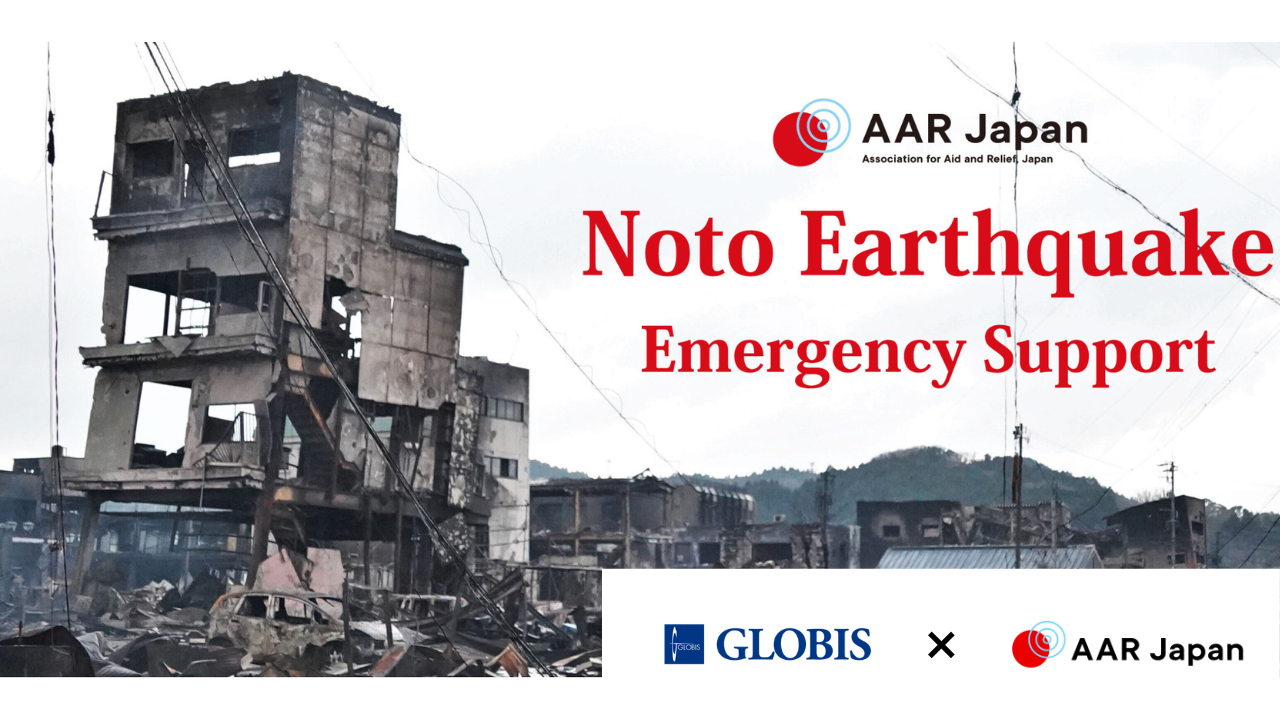Project
Activity 1: Soup Kitchen
On January 3, two days after the earthquake, AAR, together with our partner NPO Peace Project (Representative: Ben Kato, AAR Director), began serving food at evacuation centers. In the following three months, we have served more than 110,000 hot meals in cooperation with other organizations and volunteer groups of survivors.
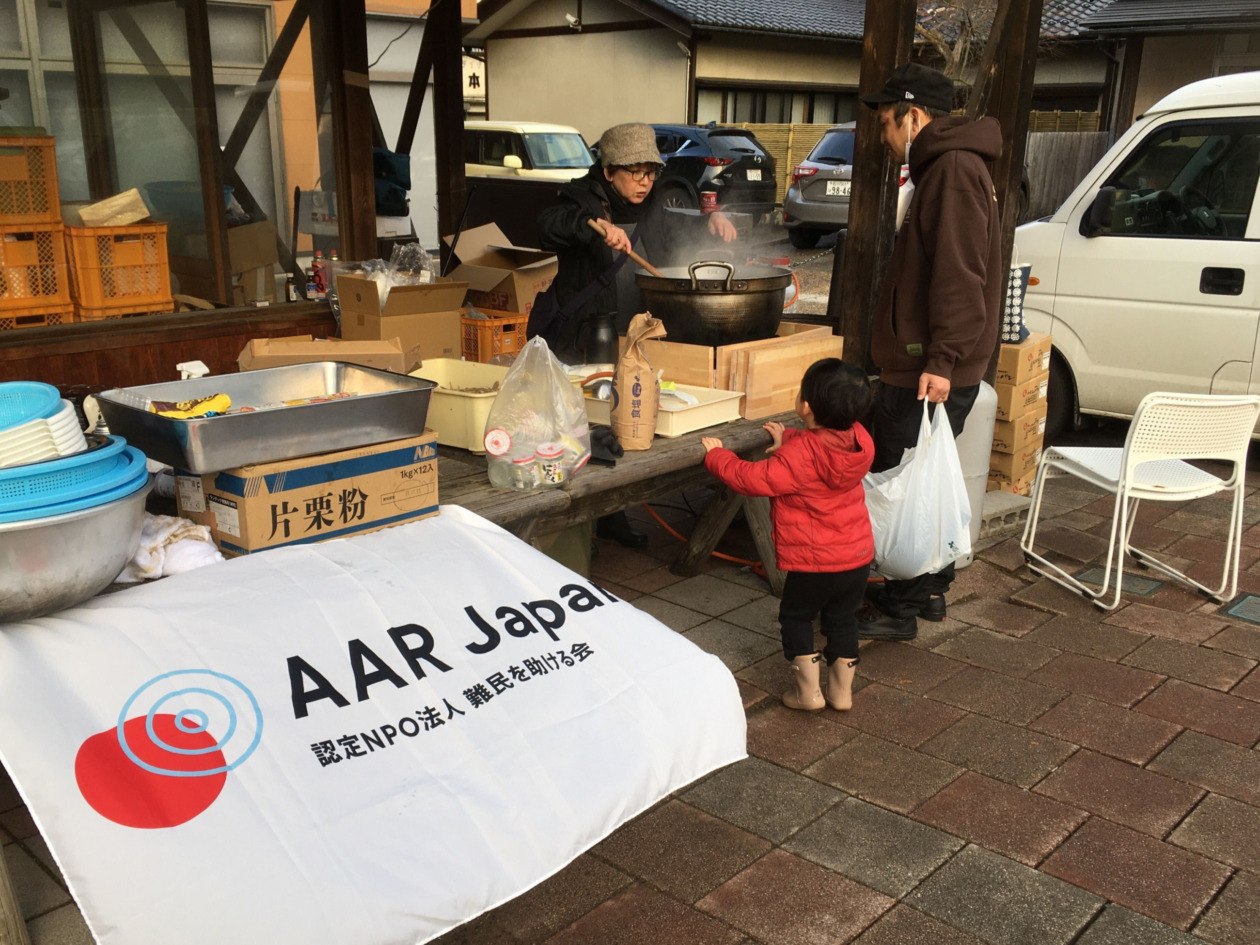
Activity 2: Distribution of supplies
In the Noto region, where transportation infrastructure was devastated, so-called “isolated communities” were scattered in mountainous areas far from urban centers where emergency assistance was difficult to reach. AAR early accessed to temporarily isolated small evacuation centers in Machino-cho, Wajima, and delivered food, drinking water, and hygiene supplies. Most of the residents of these communities are the elderly, and we supported them by carefully listening to their needs for supplies and services.
A major issue in this earthquake was the water outage due to the damage to the water supply and sewage systems. AAR delivered portable toilets, waterless shampoo and toothpaste sets, and body wiping towels donated by companies to welfare facilities for people with disabilities, elderly care facilities, and evacuation centers. Many of the recipients commented, “This is exactly what I wanted!”, and” It is very helpful for caregiving.”
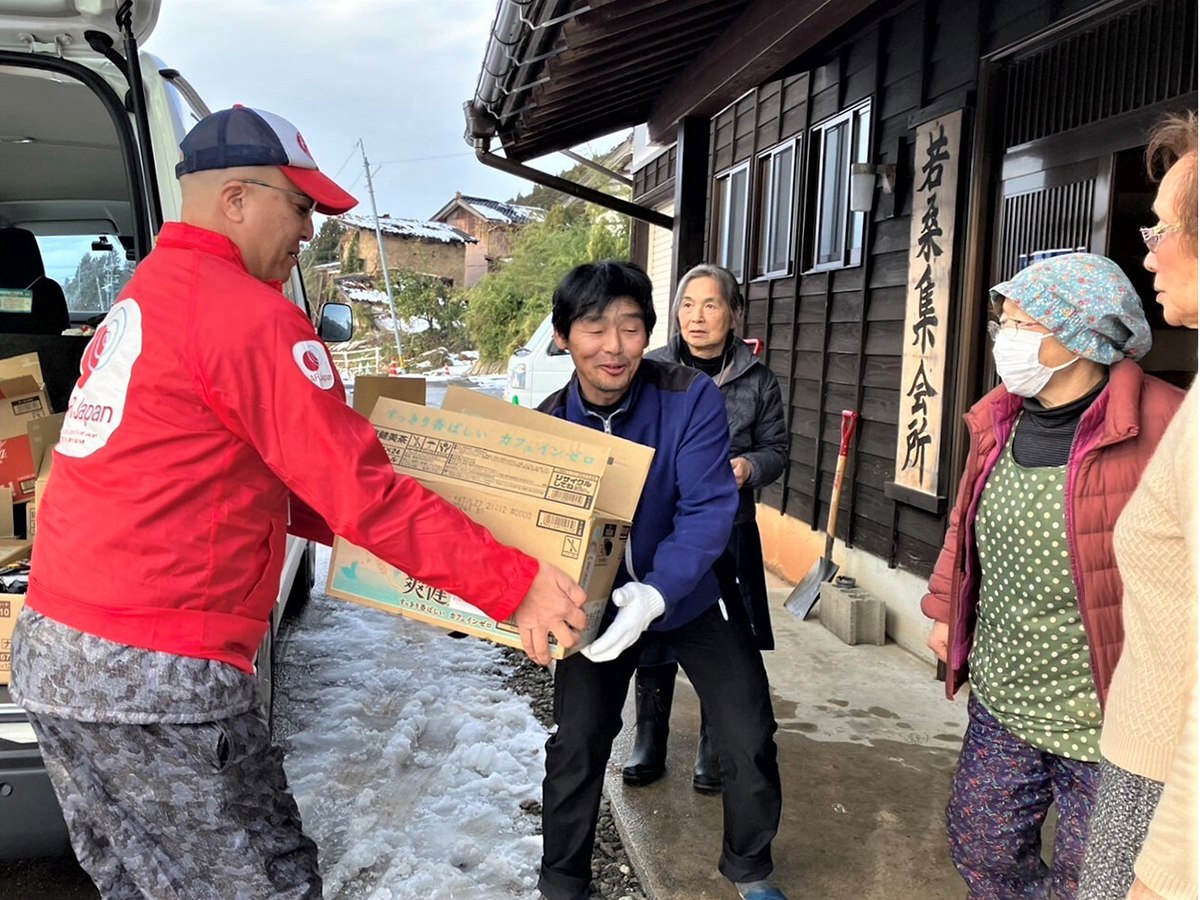
Activity 3. Support for welfare facilities for people with disabilities
In the case of a large-scale disaster, people with disabilities and the elderly, who are vulnerable even in normal times, tend to be placed in particularly difficult situations. Since AAR always consider support for them to be our priority. Our emergency support teams preferentially visited to welfare facilities in Ishikawa Prefecture to listen to their needs and delivered food, drinking water, hygiene supplies, and necessary equipment. The staff members at welfare facilities, being survivors themselves, must deal with both rebuilding the lives of their own families and rebuilding the facilities. There have been earnest requests for the facilities to be reopened as soon as possible from facility users and their families who temporarily evacuated to other locations immediately after the earthquake, but have returned from the evacuation centers. AAR is planning to repair damaged buildings and equipment at several welfare facilities.
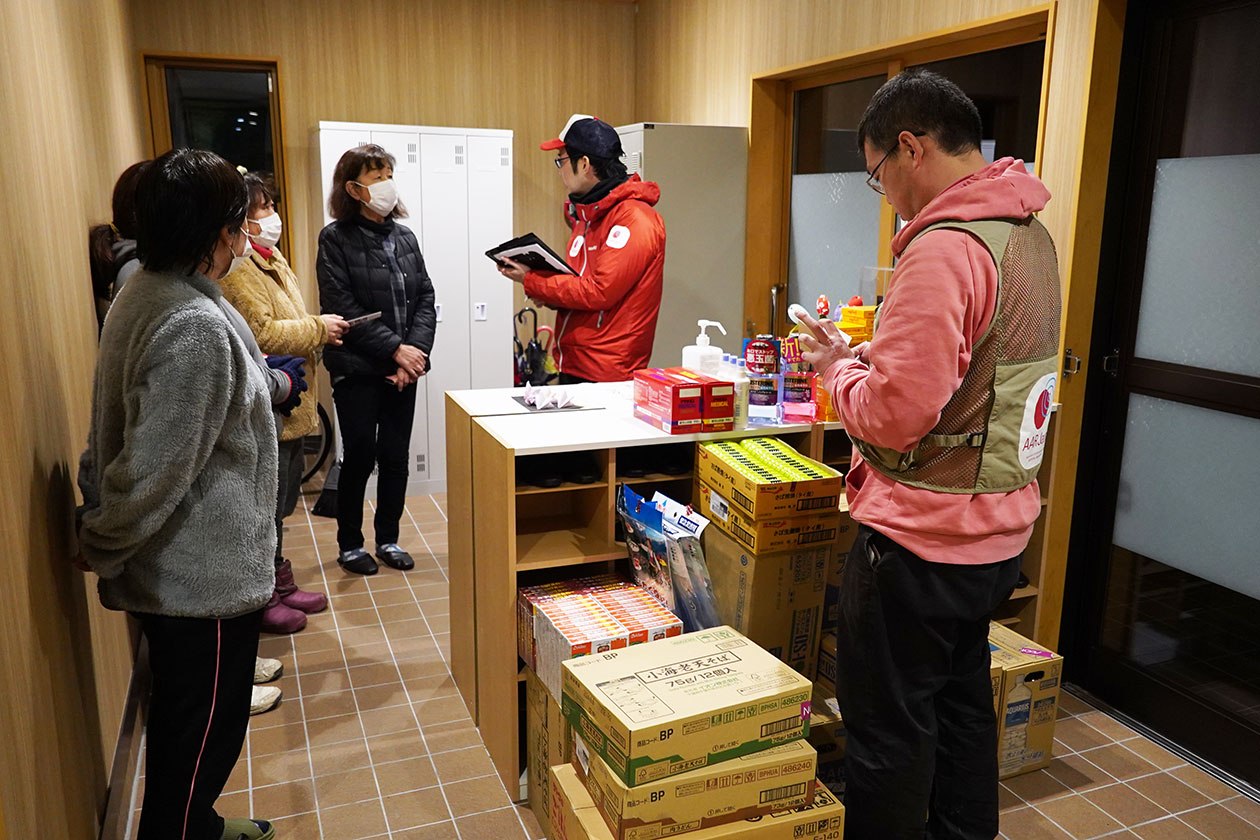
Activity 4. Community support
To meet the needs of survivors who are living in evacuation centers or at home, AAR is providing support such as expert massages by physical therapists and other specialists, mobile hot bath service, lectures and consultations for rebuilding lives by the attorney, and electric pumps for wells. A woman in her 70s said “I haven’t been able to take a bath for two months after the earthquake.”, and enjoyed the mobile hot bath for an hour and a half. As every lecture and consultation session by the attorney has many participants, AAR continues to hold these sessions in various locations while efforts for rebuilding lives are in full swing.
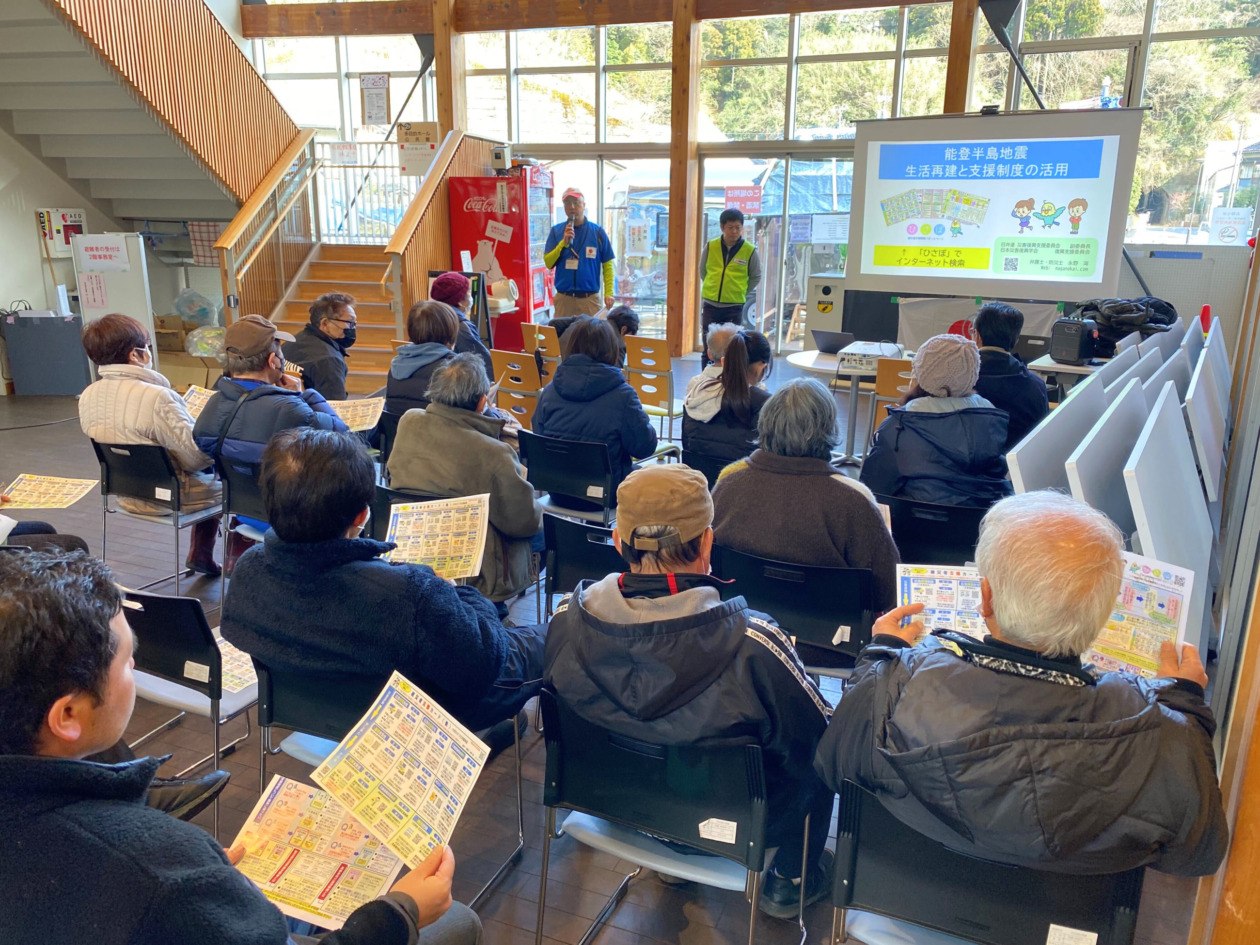
Activity 5. Support for Foreign Survivors
Foreign residents, including technical trainees in the fishing industry, have also been affected by the earthquake. Due to language barriers, they had difficulty in adjusting to the shelters and accessing to public support information, which made them hard to reach emergency assistance. AAR delivered them food, drinking water, hygiene supplies, and fuel for heating, in order to prevent them from being isolated, in cooperation with local aid organizations. We also delivered necessary supplies to Indonesian technical intern trainees in Noto Town, who“could not buy foodstuffs and having difficulty finding drinking water due to water outage” having only a cup of noodles a day, and offered instant noodles, seasonings, and coffee made in Indonesia as well.
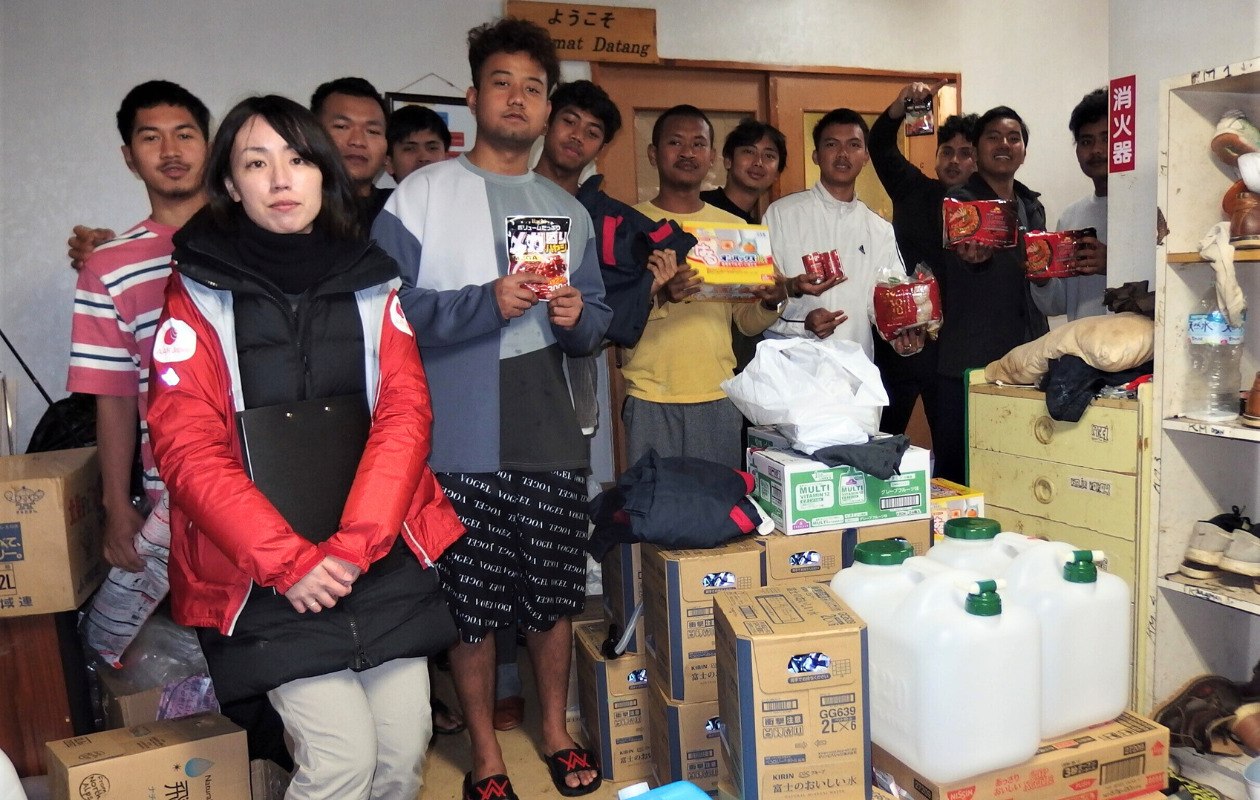
About us
AAR Japan (Association for Aid and Relief Japan) was founded in 1979 as an UN-recognized international NGO. Established with the spirit of reciprocity and goodwill, AAR Japan provides emergency relief for people affected by humanitarian crises and development assistance for their sustainable future, focusing on six fields in 15 countries. Emergency relief for the Noto Peninsula Earthquake is provided based on our knowledge and experience in disaster relief in Japan, including the Great East Japan Earthquake.
website:https://aarjapan.gr.jp/en/
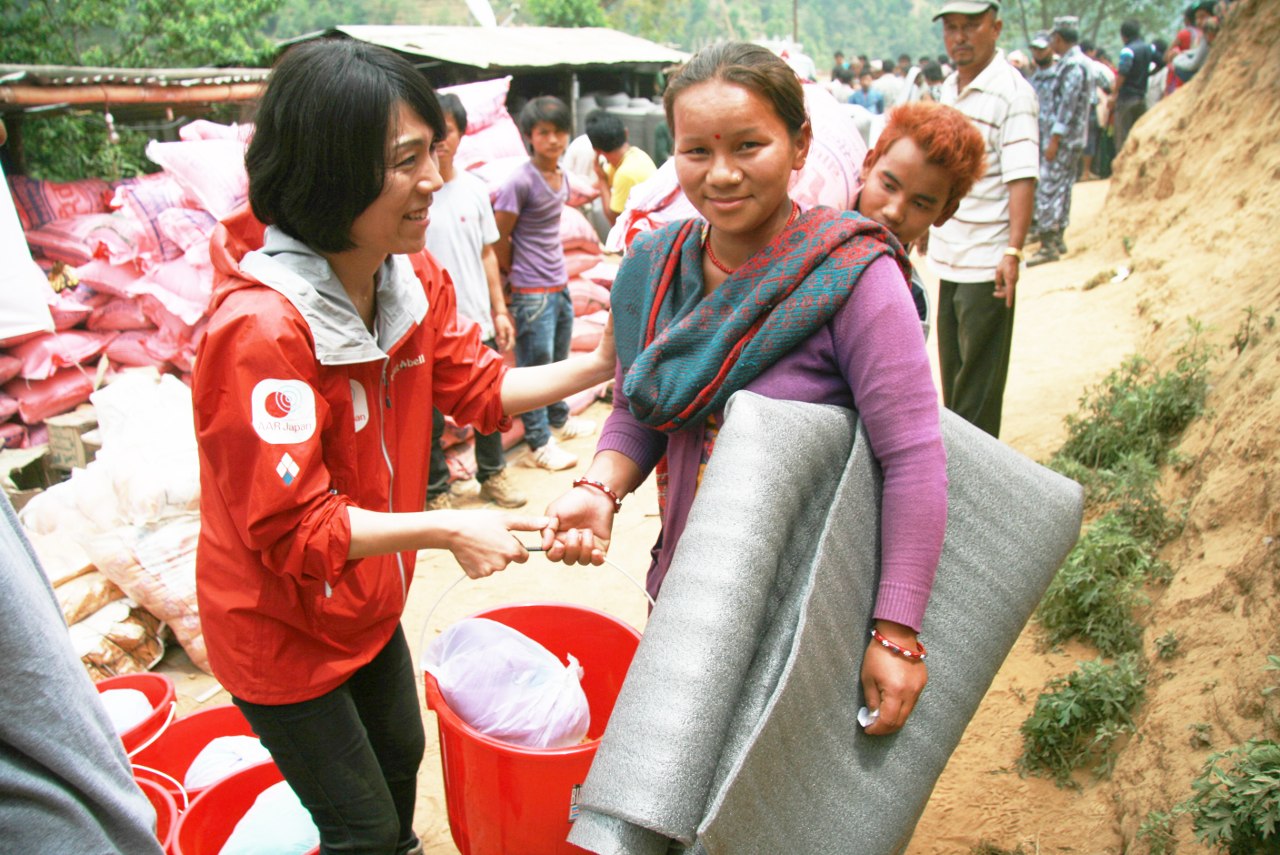
How donations are used
Your donation will be used carefully to support those who were affected by the Noto Peninsula Earthquake of 2024.
〈For example〉
・3,000 yen will provide30 x 2-liter bottles to one household (5 people).
・5,000 yen will provide hygiene items such as waterless shampoo, body wipe sheets, and waterless toothbrushes to one household (5 people).
・10,000 yen will provide nutritious meals to about 30 people.

